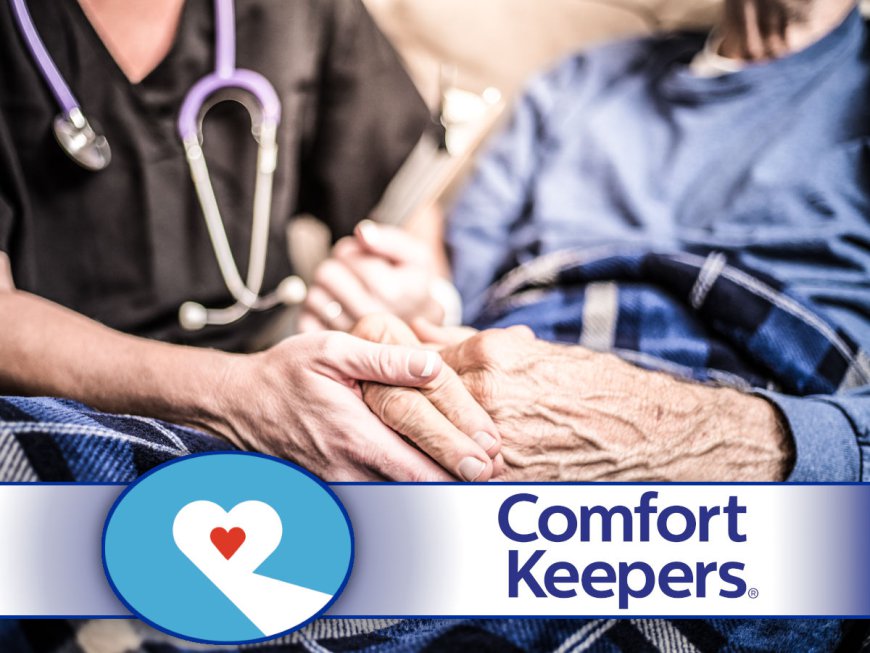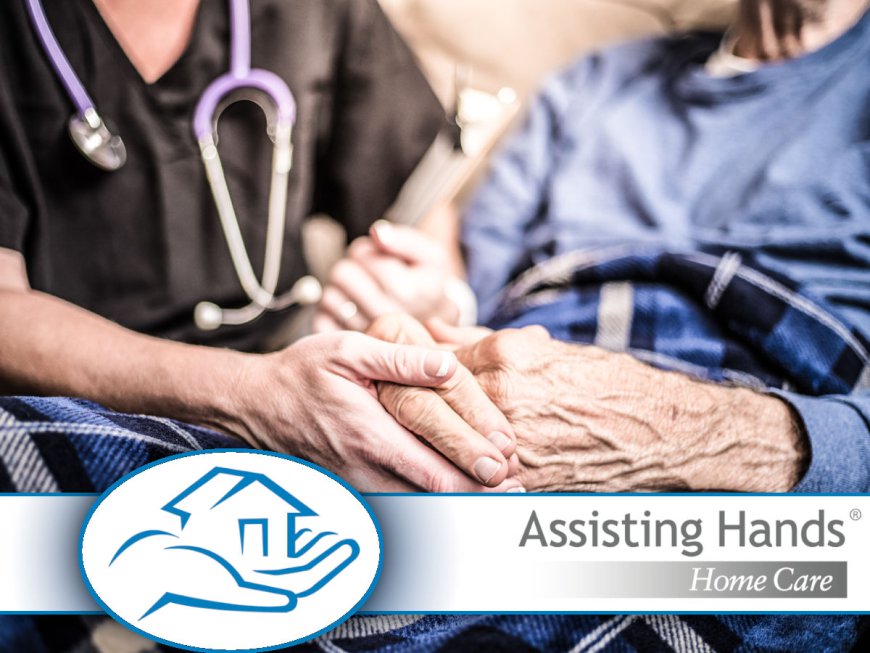A Closer Look at the Range of Services Hospice Caregivers Offer
Hospice care is designed to provide comfort and dignity to individuals facing the end stages of life, offering both medical and emotional support. For families, the role of a hospice caregiver is essential in ensuring that their loved ones receive compassionate care tailored to their needs. From pain management to emotional and spiritual support, hospice caregivers are trained to deliver comprehensive services that help ease the burdens faced by both patients and their families.
What Services Are Available Through Hospice Caregivers?
Hospice caregivers offer a wide range of services designed to meet the physical, emotional, and spiritual needs of individuals during the final stages of life. These services go beyond traditional medical care to provide holistic support, ensuring that patients experience comfort and dignity in their remaining days.
1. Pain and Symptom Management
One of the primary responsibilities of hospice caregivers is managing the patient’s pain and symptoms. At the end of life, discomfort is common, whether from chronic illness, treatment side effects, or the natural progression of disease. Hospice caregivers, often working closely with medical professionals, provide the following services to manage symptoms:
- Pain Relief Medications: Hospice caregivers administer medications to keep patients comfortable, ensuring that pain is well-managed without compromising the patient’s ability to interact with their loved ones.
- Symptom Control: In addition to pain, patients may experience symptoms such as nausea, shortness of breath, or anxiety. Hospice caregivers are trained to alleviate these symptoms through a combination of medications, therapies, and non-pharmacological techniques.
In communities like Fort Bliss and Horizon City, hospice caregivers work alongside medical teams to develop personalized care plans that address the specific pain and symptom management needs of each patient.
2. Emotional and Psychological Support
Hospice caregivers recognize that end-of-life care is not only about addressing physical needs but also about providing emotional and psychological support. Facing terminal illness can be emotionally overwhelming for both patients and their families. Hospice caregivers are trained to offer compassion and guidance during this challenging time.
- Counseling and Support: Hospice caregivers provide a listening ear for patients who may need to express their fears, hopes, or concerns. They also offer guidance to family members, helping them cope with the emotional challenges of watching a loved one’s health decline.
- Mental Health Support: For patients experiencing anxiety, depression, or emotional distress, hospice caregivers can provide counseling and, when necessary, coordinate with mental health professionals to offer additional support.
3. Spiritual Care
For many individuals, spiritual well-being becomes particularly important during the end-of-life stage. Hospice caregivers respect the spiritual and religious beliefs of each patient, ensuring that their final days are meaningful and in accordance with their wishes.
- Spiritual Guidance: Hospice caregivers often coordinate with chaplains, priests, or other spiritual leaders to provide services that align with the patient’s beliefs. Whether through prayer, meditation, or religious rituals, hospice caregivers help facilitate these spiritual needs.
- End-of-Life Reflection: Many patients wish to reflect on their life, legacy, or afterlife beliefs. Hospice caregivers create a space for these conversations, offering comfort and support as patients contemplate their journey.
4. Assistance with Daily Activities
Even during the final stages of life, patients often need assistance with everyday activities that have become difficult due to their illness. Hospice caregivers provide essential support in daily living tasks, allowing patients to maintain as much independence and dignity as possible.
- Personal Care Assistance: Hospice caregivers help patients with tasks like bathing, dressing, and grooming, ensuring that they remain comfortable and clean.
- Mobility Assistance: For patients who have difficulty moving or are bedridden, hospice caregivers assist with repositioning, transfers, and ensuring their environment is accessible.
- Meal Preparation and Feeding: As patients’ appetites may fluctuate, caregivers ensure that they are well-nourished and hydrated. They also assist with feeding if the patient is unable to do so on their own.
5. Respite Care for Families
Caring for a loved one in hospice can be emotionally and physically exhausting for family members. Hospice caregivers provide respite care, allowing families to take a much-needed break while knowing that their loved one is in capable hands.
- Temporary Relief: Respite care gives family caregivers time to rest, recharge, or handle other responsibilities, with the peace of mind that their loved one is receiving professional care.
- 24-Hour Support: Hospice caregivers can provide continuous care, ensuring that families are supported day and night. This is particularly important for families who may be juggling other responsibilities or who need additional help managing complex care needs.
6. Medical Equipment and Medication Management
Hospice caregivers often coordinate with healthcare providers to ensure that patients have access to necessary medical equipment and that medications are properly administered. This service relieves families from the burden of managing these critical aspects of care.
- Managing Medical Equipment: Hospice caregivers are trained to use and maintain medical equipment such as oxygen tanks, hospital beds, or mobility aids. They ensure that this equipment is functioning properly and help patients use it safely.
- Medication Management: Hospice caregivers oversee the administration of medications, including tracking doses, managing refills, and ensuring that medications are taken correctly. This helps prevent complications from missed doses or incorrect medication use.
7. Bereavement and Grief Support
The emotional challenges of losing a loved one do not end after their passing. Hospice caregivers often extend their services to include bereavement and grief support for family members.
- Grief Counseling: After the loss of a loved one, hospice caregivers can provide grief counseling or refer family members to specialized grief therapists. This helps families process their loss and begin the healing process.
- Follow-Up Support: Many hospice caregivers continue to check in with families after the patient’s passing, offering support during the transition and helping them navigate their grief.
A First-Person Perspective from Comfort Keepers
At Comfort Keepers El Paso, we understand that hospice care is about much more than managing symptoms—it’s about supporting the whole person, mind, body, and spirit. One of our experienced caregivers shares, “Caring for patients during their final days is a privilege. It’s about making sure they are as comfortable as possible while helping them and their families feel supported. Whether through a gentle hand, a kind word, or simply being present, our goal is to provide dignity and compassion at every moment.”
This personal approach is what makes hospice care so unique. The goal is to ensure that patients are not only comfortable but also feel seen, heard, and valued in their final days.
Conclusion
Hospice caregivers offer a wide range of services that provide comprehensive care to individuals nearing the end of life. From pain management and daily living assistance to spiritual and emotional support, hospice caregivers play a vital role in ensuring that patients and their families experience peace, comfort, and dignity. By focusing on the holistic needs of the individual, hospice caregivers offer invaluable support to both patients and their loved ones during one of life’s most challenging moments.
For families in Fort Bliss and Horizon City, Comfort Keepers provides hospice care services that prioritize compassion, dignity, and personalized care, helping families navigate this difficult journey with confidence and peace of mind.
Company Name:
Comfort Keepers El Paso
Company Phone:
(915) 842-8195
Business Address:
5927 Gateway Blvd W, Ste A, El Paso, TX 79925
Driving Directions:
https://maps.app.goo.gl/agRQNs6c9cXEsLxx6
Website URL:
https://www.comfortkeepers.com/offices/texas/el-paso/
Social Links:
https://www.facebook.com/profile.php?id=61556642291158
https://www.caring.com/senior-care/texas/el-paso/comfort-keepers-of-el-paso-79925
https://www.yelp.com/biz/comfort-keepers-el-paso-2
About:
Comfort Keepers of El Paso is committed to providing high-quality in-home care services that promote independence, dignity, and a higher quality of life for seniors and adults needing assistance.
Service Area Includes:
El Paso, Fort Bliss, Sunland Park, and other cities and towns throughout El Paso, TX.

 comfortkeeperselpaso
comfortkeeperselpaso 
